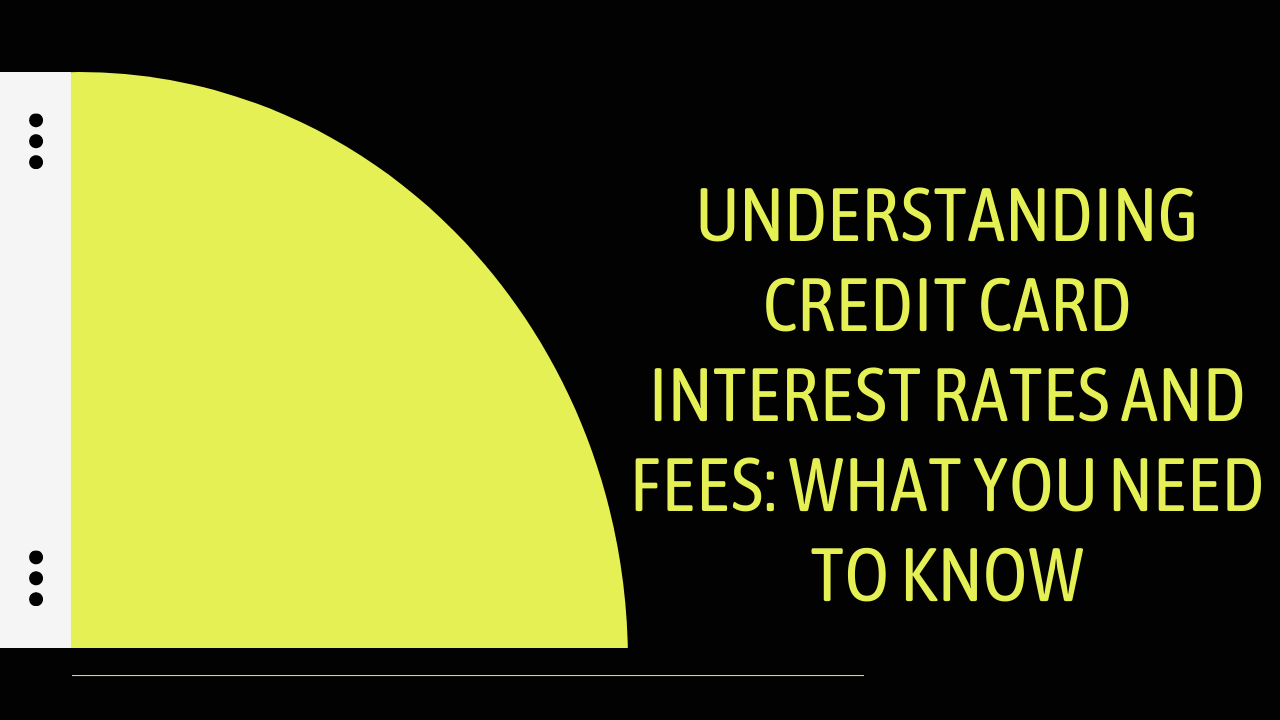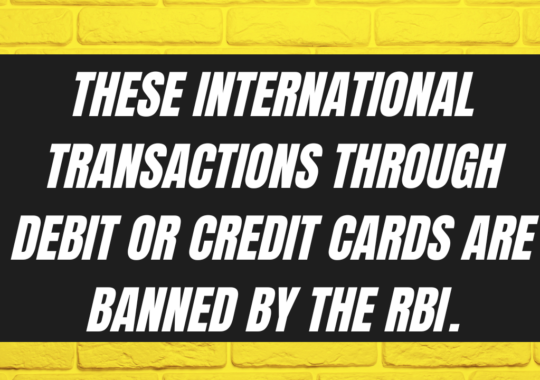This article provides essential information about credit card interest rates and fees, including how they work, how to avoid them, and how to manage your credit card responsibly to avoid debt and financial hardship.
Introduction
Credit card interest rates and fees can be confusing and overwhelming. This guide will help you understand the different types of fees and charges associated with credit cards, and how to minimize them to save money and build your credit. By learning about credit card interest rates and fees, you can make informed decisions about how to use your credit card responsibly and avoid debt.
What Are Credit Card Interest Rates?
Credit card interest rates are the fees charged by lenders for borrowing money on credit. Understanding how credit card interest rates work is crucial to avoid paying more in interest over time. While some cards offer introductory 0% APR periods, which can be a great way to save money on interest, other cards have higher rates that can quickly add up. Additionally, credit cards may have various fees, such as late payment fees, that can also impact your overall cost. Being aware of these fees and rates and how they are calculated can help you make more informed financial decisions and manage your credit card debt effectively.
Types of Credit Card Interest Rates
Credit card interest rates can vary depending on the type of rate that applies to your account. Fixed interest rates remain the same over time, while variable interest rates can fluctuate based on the prime rate or other economic factors. Some cards also offer promotional interest rates, such as 0% APR for a limited time, or penalty interest rates, which apply when you miss a payment or exceed your credit limit. Understanding the different types of credit card interest rates can help you fits your budget and financial goals, and avoid costly surprises or fees down the line.
How Are Credit Card Interest Rates Calculated?
When it comes to calculating credit card interest rates, several factors come into play, such as the type of interest rate, the balance amount, and the payment history. It’s important to understand how interest is calculated, as it can significantly impact your overall debt and repayment strategy. Some credit cards may also have penalty interest rates for late payments or exceeding your credit limit. By understanding how credit card interest rates are calculated, you can make informed decisions about your credit card usage and manage your debt more effectively.
Credit Card Fees
When it comes to credit cards, there are several fees that you may encounter, such as annual fees, late payment fees,foreign transaction fees, and more. These fees can add up quickly and affect your overall credit card costs. It’s important to understand each fee, when and how it is charged, and how you can avoid or minimize it. By being aware of credit card fees and actively managing your card usage, you can save money and avoid unnecessary charges.
Common Credit Card Fees
To use credit cards responsibly, it’s important to understand the common fees associated with them. Some of the most common credit card fees include annual fees, foreign transaction fees, late payment fees, over-limit fees, and returned payment fees. These fees can vary depending on the issuer and type of card, so it’s important to read the terms and conditions carefully. By being aware of these fees and avoiding unnecessary charges, you can better manage your credit card usage and avoid hurting your credit score.
Understanding Credit Card Statements
To comprehend credit card statements, it is essential to understand their key components, including the statement date, payment due date, balance summary, transactions, fees, interest charges, rewards, and credit limit. By reviewing and analyzing these elements, you can track your spending, monitor your balances and payments, avoid fees and penalties, and take advantage of rewards and benefits. Be sure to review your statements regularly, report any errors or discrepancies, and keep your payments on schedule to maintain a healthy credit score and financial standing.
Managing Credit Card Debt
When you have credit card debt, it’s important to manage it responsibly to avoid damaging your credit score and financial health. Start by creating a budget and prioritizing your debt payments based on interest rates and balances. Consider consolidating your debt or negotiating with your creditors for lower interest rates or payment plans. Avoid using your cards for unnecessary expenses and focus on paying off your balances in full each month if possible. If you’re struggling to make payments, don’t hesitate to seek assistance from a credit counselor or financial advisor. By managing your credit card debt effectively, you can improve your financial standing and achieve your long-term goals.
Avoiding Credit Card Interest and Fees
One way to avoid credit card interest and fees is to pay your balance in full and on time every month. This can help you avoid paying interest on your balance and also prevent late fees or penalty fees. Another strategy is to negotiate with your credit card company for lower interest rates or to waive certain fees. It’s also important to monitor your credit card statements regularly and report any errors or unauthorized charges promptly. Finally, avoid using your credit card for unnecessary purchases or overspending, as this can lead to higher balances and interest charges.
Conclusion
In conclusion, understanding credit card interest rates and fees is essential for managing your finances and avoiding unnecessary costs. By knowing the types of interest rates and how they’re calculated, suits your needs and budget. You should also be aware of common fees, such as annual fees, late payment fees, and balance transfer fees, and take steps to avoid them. Make sure to review your credit card statements regularly and keep track of your spending and payments to avoid debt and interest charges. By using your credit card responsibly and paying on time, you can improve your credit score and achieve your financial goals.
Also Read:
- 5 Questions to Ask Before Using a Line of Credit
- How to choose the right credit card for your needs
- Is it a good idea to buy a Car on a Credit Card?
- What Are the Benefits of a Bank of Baroda




